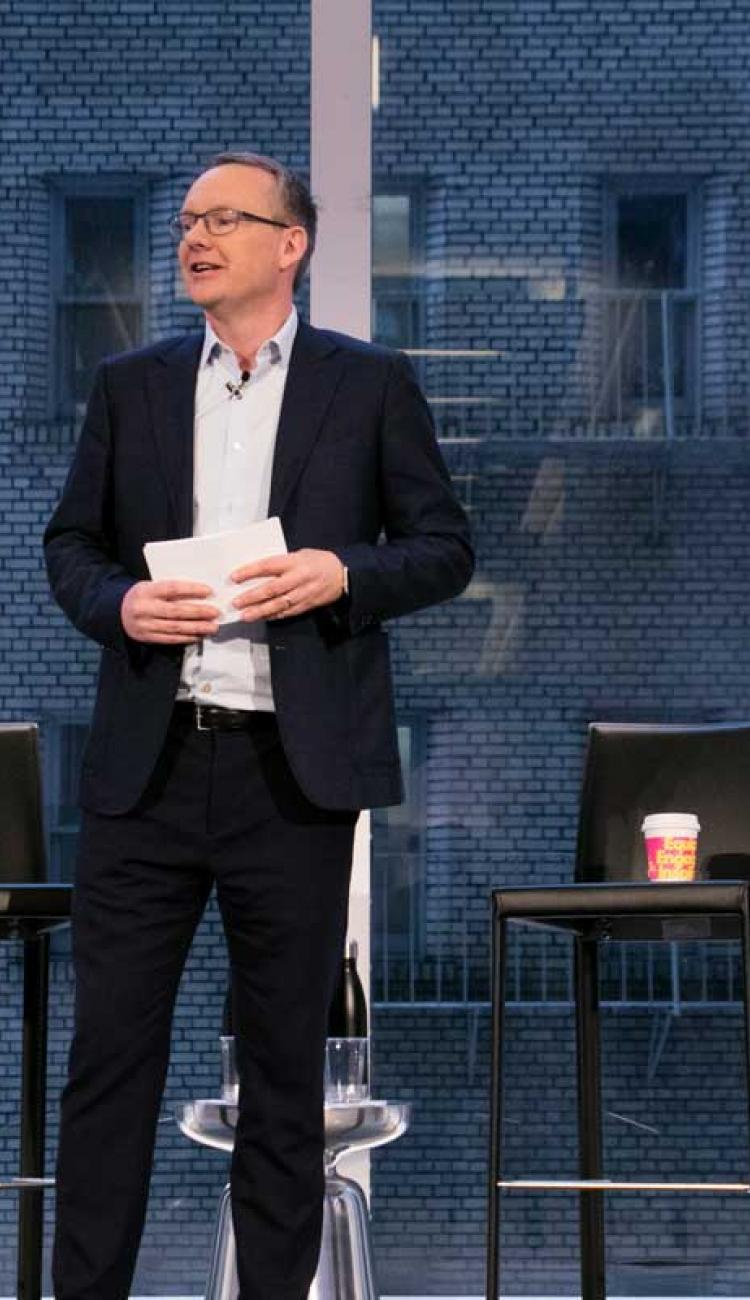Feb 13, 2019
From apps to events to content, how Viacom International Media Networks scours the globe to find what works.
Viacom’s international footprint has exploded across the linear, digital, and experiential spaces over the past decade, providing an advantage outside of sheer scale and market share: the creation of a global business laboratory. This international market is where U.S. concepts can be adapted to local cultures and original ideas can be tested on a small scale.
That was a core theme articulated in an upbeat state-of-VIMN (Viacom International Media Networks) address from VIMN CEO David Lynn and COO Melody Tan, which was live-streamed to a global audience on Tuesday as part of Viacom’s Spark employee engagement summit.
Lynn began by outlining the torrid growth of an entity that, 10 years ago, had no original content, no digital presence, and no complementary businesses outside of consumer products. VIMN now sits in 3 billion households, will produce 8,000 hours of original content this year, has a digital presence that constitutes 20 percent of the division’s distribution revenues, and is moving quickly into adjacent businesses such as theme parks and studio production.
"One of the advantages we have in international is that we’re able to pilot ideas, try new business opportunities in a single territory, and if it works, then we expand."
One key driver of that success has been VIMN’s role as a “source of innovation for Viacom,” according to Tan. One of the central challenges to organizing the sprawling VIMN organization – fragmented markets with vastly different cultures, traditions and regulations – turns out to also be one of its great strengths.
“One of the advantages we have in international is that we’re able to pilot ideas, try new business opportunities in a single territory, and if it works, then we expand,” said Lynn.
A Glocal Approach to Adaptation
In the realm of content, this adaptation and experimentation can work a couple of different ways. In one model, a popular U.S. property such as MTV’s Jersey Shore, which has been adapted to five markets, or Paramount Network’s Lip Sync Battle, which now has 23 international versions, will be updated with a local cast and sensibilities. In another, a show that takes off in a smaller market will be adapted to others. Ex on the Beach, for example, aired for 36 seasons across 14 territories before landing on MTV in the United States.
The same sensibility of reusing what works has stimulated growth areas throughout VIMN and Viacom. After Nickelodeon’s SlimeFest debuted successfully in Australia, the event migrated to the U.S. When Viacom International Studios formed last year as part of Viacom’s broader premium content production initiative, they resuscitated Channel 5’s dormant Elephant House Studios to complement Telefe’s wildly successful Spanish-language production house. The Playplex and Paramount Plus apps have expanded from market to market as VIMN has grown its mobile footprint.
"When you’re working with a far-flung workforce, it makes it more challenging to make sure we’re aligned in terms of culture and engagement and communication."
VIMN has also been bold in experimenting with strategic partnerships to adapt to specific markets. In India—an enormous and complex market that spans many cultures and languages—Viacom partnered with local conglomerate Reliance to launch Viacom18, which is now one of the top three television networks in India. In the Netherlands, an ad sales partnership with Fox and Discovery helped raise Viacom’s share by several percentage points. And a five-way partnership helped Nickelodeon’s consumer products business establish a foothold in Japan, a particularly challenging market because of strong affinity for local brands.
It All Comes Back to Company Culture
VIMN has also adopted a culture of flexibility that carefully assesses each nation or region to determine optimal business strategy. In the UK, Spain, and Italy, the U.S. cable-based Paramount Network is free to air. In Germany, all of VIMN’s networks are free.
This mindset of change and adaptability, Lynn says, comes down to company culture. “When you’re working with a far-flung workforce, it makes it more challenging to make sure we’re aligned in terms of culture and engagement and communication,” he said.
Lynn went on to outline three VIMN initiatives that work to achieve this: an emphasis on diversity and inclusion and regular challenges sent to all employees asking them to help solve business problems. And, of course, programs like Spark that drive talent development. As Lynn said, these initiatives “make me confident that we not only have the culture now to drive innovation, but we’re going to have it in the future too.”



